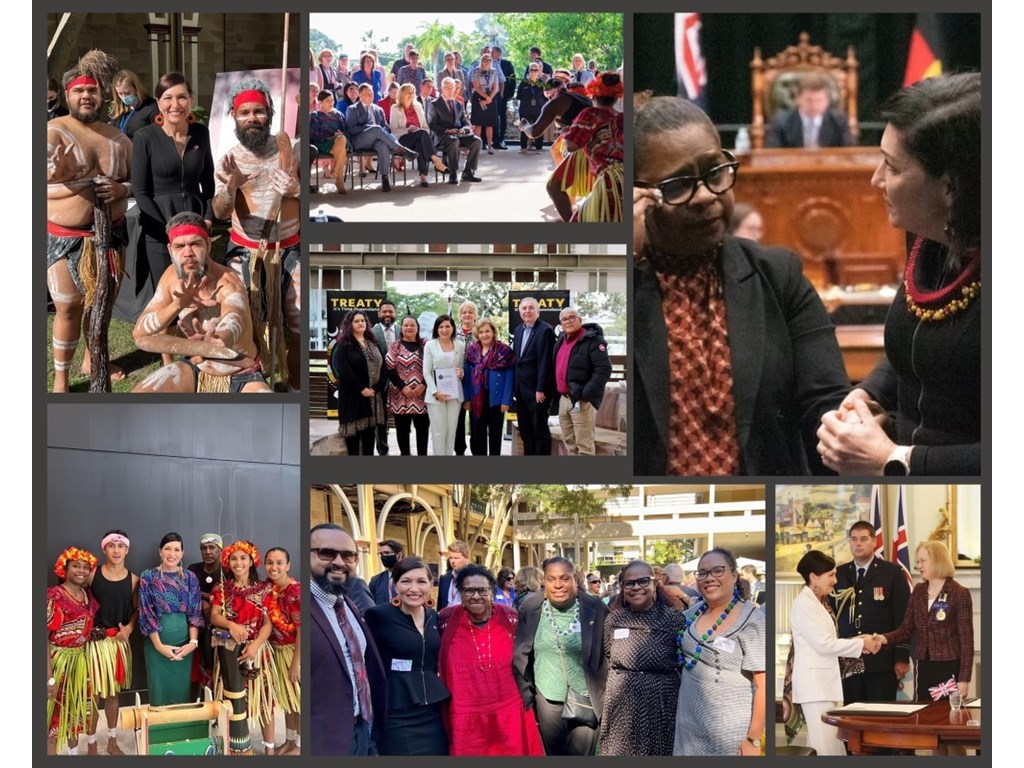Thank you to the Prime Minister and the Opposition Leader for wonderful, heartfelt tributes which do great justice to the life of a great man.
But thanks in particular to Dallas, Georgina, Ingrid and Kirk for the loving and indispensable role you played in Bill Hayden’s immense contribution to his community and our country.
Thank you for including us in that beautiful, inspiring, uplifting funeral at St Mary’s in Ipswich. And thank you for making the effort to be with us, as we console you in your loss and celebrate a really quite remarkable life.
Thank you to the House for the opportunity to speak as an admirer of Bill Hayden but also a successor and as a Queenslander.
In that regard, I acknowledge the Member for Moreton, the Member for Lilley, especially the Member for Blair and yourself, Mr Speaker, who now represent Bill’s old stomping ground to the west of Brisbane.
Bill Hayden was a wonderful Queenslander and a fine Australian.
Photos of his time in leadership and as treasurer, revealed he had a particular Queenslander’s style as well. Paul Kelly from The Australian wrote of Bill’s “uniquely Queensland sense of colour contrast: open necked blue, white and pale blue sports outfits.”
Bill Hayden was a selfless, safari‑suited servant of the Australian people and the Australian Labor movement.
He was grounded and respected.
Dennis Atkins wrote about how self‑effacing he was.
Wayne Swan spoke about how he reminded us that politics can be an honourable profession.
Sister Angela Mary Doyle spoke about how Bill Hayden was always in search for purpose and not just publicity.
He was somehow humble and historic at the same time.
That was really his genius, to take what he gleaned from real people in real communities like the ones that we represent and to translate that into real and lasting change here at home – but also as the Prime Minister said ‑ around the world.
Sometimes in the history books, Bill Hayden is regarded as a transitional figure, between Whitlam and Hawke, but I think that sells him short because Bill Hayden was much, much more than a transitional figure, he was a transformational figure as well.
He knew that his job wasn’t to be a custodian or a curator of the past or to mind the shop for those who would come after him – he was bigger and bolder and more ambitious for Australia than that – and that was reflected in his immense achievements.
But perhaps the finest praise we can bestow on him was that he never forgot where he came from –
From Highgate Hill to high office he was, by all accounts, the same decent man.
From the rented weatherboard cottage on stilts, with the corrugated iron roof and the outdoor dunny, on Mabel Street.
From St Ita’s Convent, walking without shoes to a little school across the river from the new University of Queensland – all the way to Government House.
But it was the Ipswich community that you know, Mr Speaker, that informed, developed and inspired him for over 60 years.
His life and his experiences shaped the policies for which he’s best known: the pension for single mums, Medibank, and much more.
He was Labor leader, he was social security minister before that, and foreign minister and governor‑general after that.
He was Australia’s 27th treasurer but his impact including on economic policy went well beyond the five months he served in that role in the dying days of the Whitlam Government.
That’s why among the mourners at St Mary’s on that day that the Prime Minister has described, were the 30th, 34th, 36th and 41st treasurers.
And I know that I speak on behalf of Paul, on behalf of John and Wayne and myself, we share an enormous, unbounded regard for Bill Hayden and for his enduring example. I think that’s because he was able to unite the competing tensions of his time:
Warm hearts and hard heads –
Responsibility and reform –
Pragmatism and principle –
Ends and means.
He knew, as the Opposition Leader said, that everything we wanted to do for people was built on the most solid foundations of responsible economic management.
This wasn’t always the tone or tenor of his time – so he changed it, and he changed us, and he did more than deliver us to the doorstep of victory in 1983 – he put us in a position to change the country for the better.
Without his efforts, the reform burst of the 1980s and 1990s would not have been possible. This is something acknowledged by Paul Keating who said Australia’s quarter century of uninterrupted growth began its long coalescence the day Bill Hayden convened his first shadow cabinet meeting.
Bill’s handing the leadership over to Bob Hawke with the prime ministership in full view was an act of selflessness unrivalled before or since.
It was a defining act in the political history of this country.
But as Troy Bramston and Niki Savva and others have all written, he didn’t just hand over a party ready to govern.
He handed over the most remarkable combination of talent and purpose – what became the Hawke Cabinet was really Bill’s personal legacy to go along with the policy and the political.
He created the foundations of the best Australian government since Curtin and Chifley.
Mr Speaker, Bill Hayden never forgot where he came from and we will never forget him.
We will never forget the contribution he made to his community or our country.
So, at the end of a long and tireless life of service and selflessness, of humility and history, may he now rest in the warm embrace of our country’s gratitude, our admiration and our respect, and may he rest in peace.








